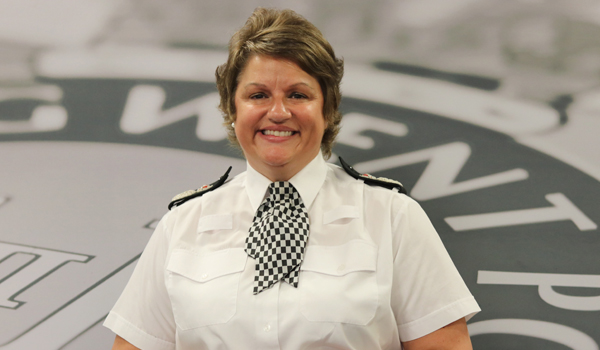Chief constable ‘fully supports’ new law to end physical punishment of children
The chief constable of Gwent Police says a new law to be introduced later this month in Wales that makes the physical punishment of children illegal will be “a historic moment for protecting the rights of children”.
From March 21, the Children (Abolition of Defence of Reasonable Punishment) (Wales) Act 2020 will come into force, removing the historic defence of reasonable punishment and giving children the same legal protection from assault as adults.
Pam Kelly said her force “fully supports this new law”, adding: “March 21 will be a historic moment for protecting the rights of children in Wales. From this day on, physically punishing children will be illegal across the country.
“Our role as police officers, while working with other safeguarding agencies in Wales, is to provide support and reassurance to families, not to criminalise them. However it is important to recognise that discipline and physical punishment of children are not the same thing.
“The safeguarding of children is paramount and police colleagues across Gwent work closely with partner agencies to ensure that the protection and safety of children is a priority.
“We will continue to work with the Welsh government, key stakeholders, other Welsh police forces and police and crime commissioners and the Crown Prosecution Service to implement the changes.”
Professionals representing a range of sectors across Wales have been working together to ensure the new law is rolled-out effectively. This includes preparing organisations for the law change, raising awareness and providing information and advice for parents.
Dr Rowena Christmas, chair of the Royal College of General Practitioners Wales, said: “The evidence is absolutely compelling that physically punishing a child can be harmful to the wellbeing of both child and parent.
“It offers no benefit that cannot be gained from another method of discipline but is associated with a broad range of harms that can last a lifetime.”
The Act, which received Royal Assent on March 20, 2020, does not create a new offence: it removes a 160-year-old legal defence which sent the message that it was acceptable for children to be physically punished by their parents or those with parental authority.
The Welsh government said over the years legislation has limited the circumstances where the defence could be used and limited the settings where children can be physically punished.
It added: “Physical punishment has been outlawed in schools, children’s homes, local authority foster care homes and childcare settings.
“While smacking is what usually comes to mind, physical punishment can take many forms, including hitting, slapping and shaking.
“Attitudes towards physical punishment have changed with fewer parents and guardians of young children in Wales supportive of physical punishment. What was seen as okay 30 years ago is less so now.”
Stephen Thomas, headteacher of Ysgol y Bryn Llanelli, said: “In a world where everyone makes mistakes, adults included, it is crucial we support our children and young people through helping, supporting and guiding them to learn from mistakes.
“Physical punishment has no place in raising children. Providing consistency, good routines and being role models for our children in the values we would like them to display creates good people.”
Fôn Roberts, director of social services and head of children and families services at Anglesey Council, said children should be able to enjoy their childhood.
“There are many more effective ways to parent than resorting to physical punishment and as a social services team we are here to offer advice and support parents and carers looking for alternative means to discipline,” he added.
Dewi Rowland Hughes, senior educational and child psychologist and president of the Association of Educational Psychologists, said: “No parent wants to smack their child and there are good reasons not to. First, the negative effect on the carer-child relationship – it damages the bond of trust and causes negative associations. Secondly, it’s an abuse of power and a humiliation for the child – to force them to stop doing something you don’t like. Thirdly, it’s a bad model of how to behave when you’re annoyed by something someone is doing, which is not what we want to teach our children.
“Fortunately, there are good, positive alternatives to physical punishment. We can develop positive discipline with our children and so put smacking where it belongs – in the dustbin of history.”
Professor Karen Graham said banning physical punishment was about “so much more than preventing smacking”
“It is about fully supporting more meaningful forms of discipline that build resilience and trust while strengthening your lifelong relationship with your child,” she added.
The UN Convention on the Rights of the Child (UNCRC) is the basis for the Welsh government’s policy on children. Prohibiting the physical punishment of children is in accordance with article 19 of the UNCRC – the right to protection from all forms of violence. Once the law commences, Wales will join more than 60 nations across the globe that have already outlawed physical punishment towards a child.


